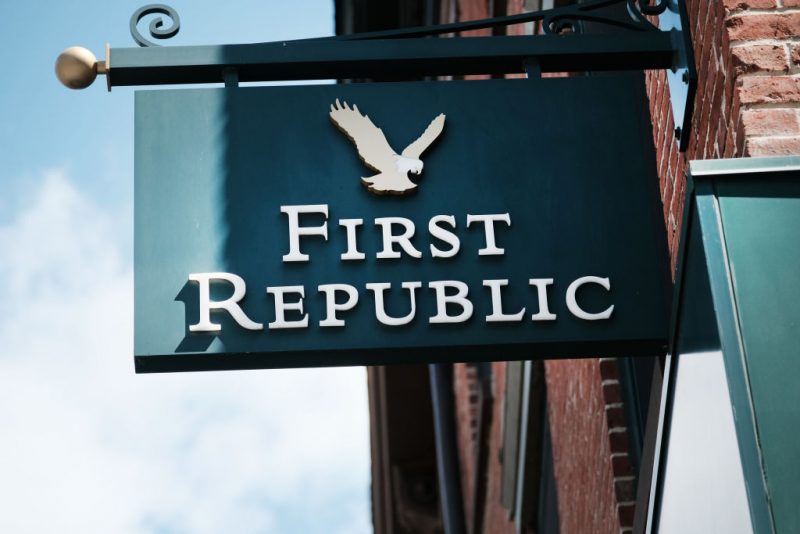
OAN’s Geraldyn Berry
8:55 AM – Tuesday, May 2, 2023
First Republic Bank was taken over by the Federal Deposit Insurance Corporation (FDIC) on Monday with JPMorgan Chase as the buyer. The transaction is set to increase the size of the country’s largest bank while protecting depositors and perhaps wiping out shareholders.
When the bank had disclosed that it had lost $100 billion in deposits as a result of rich clients’ panic brought on by Silicon Valley Bank’s failure, First Republic’s demise was sealed. Last week, its stock fell by 75%. After the transaction, JPMorgan’s stock had rose 2.3% on Monday.
“This part of the crisis is over, “JPMorgan Chase CEO Jamie Dimon said.
Advertisement
More than two-thirds of First Republic’s deposits were in excess of the $250,000 insurance limit set by the FDIC, indicating that the company depended significantly on rich customers. The depositors had withdrawn their money out of fear of losing it, despite the fact that this percentage was lower than at SVB and greater than at other local banks.
The FDIC deployed around $13 billion from its deposit insurance fund, which is funded by fees on banks, to safeguard First Republic depositors.
The Federal Reserve’s increase in interest rates caused the value of the bank’s long-term Treasury bonds to plunge, which made it harder for the bank to obtain money to offset deposit withdrawals. As a result, the bank was forced to take significant unrealized losses.
President Joe Biden stated on Monday that because of the efforts of federal authorities, the American financial system was “safe and sound.” He also asked regulators to tighten laws governing large banks and urged Congress to hold bank executives accountable.
“Folks, we have to make sure that we’re not back in this position again, and I think we’re well on our way to be able to make that assurance,” Biden said.
For approving a deal that effectively allowed JPMorgan Chase to buy a major bank’s assets at a government-subsidized discount, the FDIC came under fire on Monday.
In response to criticism that the FDIC wasn’t adequately ready for First Republic’s bankruptcy, authorities were urged to adopt fair and effective rules for handling bank failures.
“We should plan for those bank failures by focusing on strong capital requirements and an effective resolution framework as our best hope for eventually ending our country’s bailout culture that privatizes gains while socializing losses,” Republican FDIC board member Jonathan McKernan said.
This comes as First Republic Bank (FRC), Silicon Valley Bank and Signature Bank are the second, third, and fourth largest bank failures in U.S. history and have taken place over the last two months.
It is reported that the combined assets of the three banks that fell in 2023 were $548.5 billion, surpassing the total assets of all banks that failed in 2008 by $175 billion and falling just shy of matching the total assets of all previous bank failures since 2001 by around $173 billion.
Stay informed! Receive breaking news blasts directly to your inbox for free. Subscribe here. https://www.oann.com/alerts

